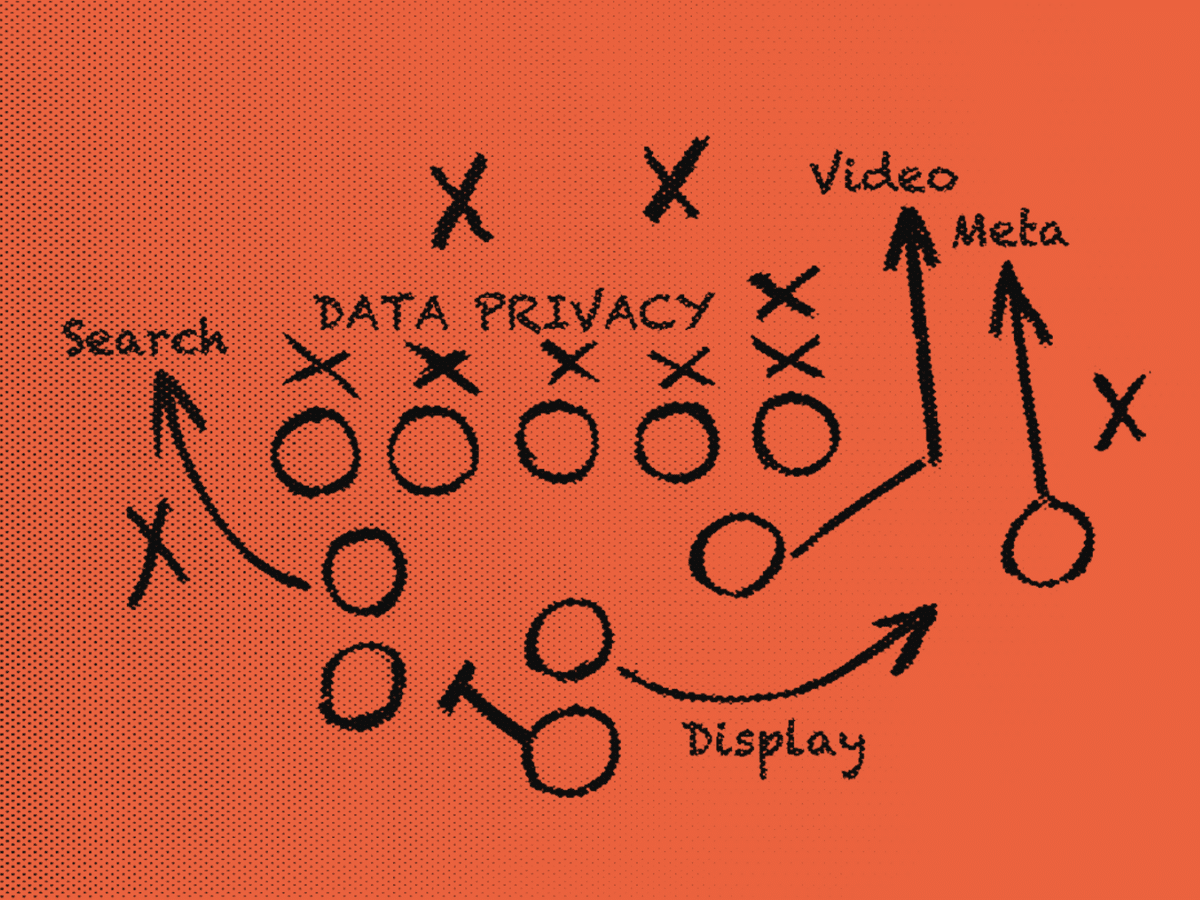With the rapid development of SARS2 CoV 2, many people who are accustomed to doing a daily commute and going into an office are finding themselves in uncharted territory in their work routine. It is disorienting to suddenly be thrust in this situation. I’ve been working remotely for over ten years. I’ve done it as an executive, as a business owner, and now as a consultant at Chameleon Collective, a company founded on the concept of remote, on-demand work. Our CEO, Freddie Laker, wrote a great article geared towards leaders having to adapt to remote workforces. I hope you find both useful as many of us find ourselves in an unfamiliar space at the moment. I would love to hear your own tips and tricks or questions. Please share below in the comments.
1. Boundaries.
Every workday you close your door, hop in the car or other transport, go to the office, sit at your desk, eat-in specific spots, meet in certain spots. All at specific times and with implicit and explicit expectations. Things are very defined in terms of physically, temporally, and psychologically.
One of the hardest things to adjust to when working remote from your home office is all of that is in flux–until you make it otherwise. Even if you have space for a dedicated office, that’s no guarantee that your usual work routine will work the same (Protip: Don’t be that guy or gal–if your child or pet interrupts a call you’re having, embrace it and have fun…right now we all need a laugh and to feel connected).
What this means is you have to create all of these boundaries yourself. My advice if you find yourself suddenly “WFH” is to organize your living space into work areas. If you’re fortunate enough to have a dedicated office area, use it. Many do not have such luxury, however. So instead pick a chair or area in your home that is now dedicated to working. In time, your mind will naturally adjust to moving into that space as work mode. And just as importantly, moving OUT of that space will signal to your mind and body that you’re leaving work mode. Try your best not to mix these areas.
It is very important to create these spaces for yourself early. Hopefully, this situation is short-lived. The reality however is we know very little at the moment so make the adjustments now so you’re prepared if this goes on for a while.
2. Breaktime.
It’s very easy for people who work remotely to fall into the habit of waking up, turning on the laptop and getting right to it. You take lunch with your laptop. Suddenly you look up from a spreadsheet and it’s 7:30 pm and you realize you’ve defrosted nothing for dinner.
The funniest thing about people who are anti-WFH (and in my experience executives are the worst perpetrator of this myth) is that they think people will just turn on the TV and start goofing off. They won’t actually work. Of course, there are a few folks who take advantage of any situation. But the vast majority of people I know who work remote are not like this–their (and my) problem is we work too much.
My point is if you’re new to this and you in any way enjoy what you do for a living, you may find you enjoy doing it even more now. It’s so easy to focus compared to working in an office.
My advice: Take breaks. Small (<5 minutes), frequent breaks are the best way to pace yourself. Try to time these breaks to small accomplishments. As you build on these small wins throughout the day, you’ll see you’ve done a huge amount by the end of it. And if you take the breaks, you won’t feel burnt out either.
If you think back to when you sat at a desk, you’ll remember these happened naturally. Joe stopped by from Accounting and you talked about a shared interest. You got up for a snack. Build the same routine at home.
3. Daily Start and End Goals.
Life is fluid and chaotic at the moment. Our leaders are saying it is likely to become more so. In such times communication can be challenging. Take responsibility for your own day. Start each day with clear, written objectives of what you want to get done. Take stock at the end of the day and organize for tomorrow. This not only will make you feel more effective but also you’ll feel some measure of control during a time when that is in lower supply.
4. Pick up the phone.
While tools like Slack, Zoom, and Asana are invaluable for a remote workforce, do not be the person who forgets to pick up the phone. This goes double for complex or contentious situations. There are no shortage of examples where someone writes via SMS or other short written media and it gets easily misconstrued. Our most powerful communication tool is our voice.
Related to this you’ll be having a lot more conference calls now.
5. Build a community before communication.
This is a once in a generation type of situation we’re all experiencing together. Remember times are stressful now for everyone. SOPs are and will continue to be significantly disrupted. Empathize and be patient as much as possible. And be forgiving too. You rarely know what other folks are going through. Be human and build communities of support for yourself, your loved ones, and your coworkers. Here at Chameleon we just created a weekly call where we can connect and share called “Remotely Talking” (thank you to our awesome Operations Manager Jacqui Kebrdle for the idea and execution!). This is a space for our 100+ team to share and bond via Zoom video conferencing. Is it as good as having a beer with a coworker at a happy hour? Course not. It is better.
6. Stay informed and make informed decisions.
I’ve been following this since the end of January. Two months ago people who raised the alarm were mocked as wearing tinfoil hats and being fearmongers. Even today, folks being vocal about this pandemic are STILL being ridiculed despite the overwhelming amount of data from the scientific community telling everyone that this is a very serious situation. I advise you to be present and look into things yourself from multiple angles and sources. Talk with your neighbors. Create plans with your family. Working remote poses unique challenges to this but also unique opportunities.
When you work remotely, it’s important to take the time each day to connect with your co-workers and share information and keep up to date with what’s happening with your business. Work with your company leaders and teammates to create times to share information important to business continuity. If you are a leader, be a leader. Share information openly and regularly with those who work for and with you. Be direct and transparent. Talk about hard things. If you do, those who look to you for guidance will work harder for you.
7. Stay calm.
This is true before this pandemic and will be true afterward. Nothing good is achieved by panicking. If you find yourself feeling overwhelmed, take a break and focus on your breathing. Breathe, he says. We all breathe! Sounds stupid or silly, but as a person who suffered from serious panic attacks earlier in life, I can tell you there is no better method than slowing down and focusing on your breathing.
While the best advice right now for flattening the curve is social distancing, that doesn’t mean you can’t go for a walk to clear your head. Just follow what the experts are saying and do it wisely. Use one of those short breaks I mentioned above to take a moment and breathe deeply or go for a walk and it will absolutely help you feel calmer.
Remember that just like when a coworker or boss annoys you, this too will pass.
8. Over-communicate.
I recently had a six-month leadership engagement with a client that was a billion+ dollar a year corporation. They wanted me to come into their office every week, many states away. I told the CMO that there was no way I was doing that. I told him that I’ve been working remotely for a decade very successfully and I can do it for him as well. He was unconvinced.
As a compromise, I told him that every day I would provide a list of everything I had done for him and the work would be very clearly visible to him and team members. We’d try it for a month and if all went well, we’d continue. He reluctantly agreed. At the end of the six months, we had a good laugh about that because we accomplished a great deal together and he felt that hiring me was one of the best decisions he had made. This comment was possible, however, only because I over-communicated every single day. He knew exactly what I was doing at all times and that my work was always aligned with the objectives. As a result, the outcome was positive.
If you find yourself in the position of having to suddenly work remotely, I cannot stress how important it is to do this. And if you and those around you adopt this habit, as occasionally annoying as it can be, there is zero doubt in my mind you and your organization will attain far more than if you do not.
9. Make time for personal growth.
Related to pouring too much time into work, be sure you put on your calendar an hour (I do it every morning) to enrich your mind. For me, this is usually reading but recently I’ve also taken up indoor gardening. I’ve had multiple vegetable and fruit gardens in my life, but this is the first time I’ve done it indoor, which presents new challenges and learning opportunities (in addition to delicious food if I’m diligent and a little bit lucky). Because you’ll find yourself able to be more efficient by working remotely, be sure to give yourself some of that time back to grow. Makes no difference what it is, just take the time to do it. For those of you new to remote working, take some time to read books like these. If you’re new to managing remote folks, here’s a great resource for you also.
10. Remember what’s most important.
Almost all of us have to work. But those close to us are what is truly important. For many of us, they are the reason why we work hard. Make sure you spend time with them and tell them you love them and that you’re there for them. Working remote all the time can easily take up a great deal of your available time without you even realizing it. Be present as much as you are able by keeping work at a reasonable level.






